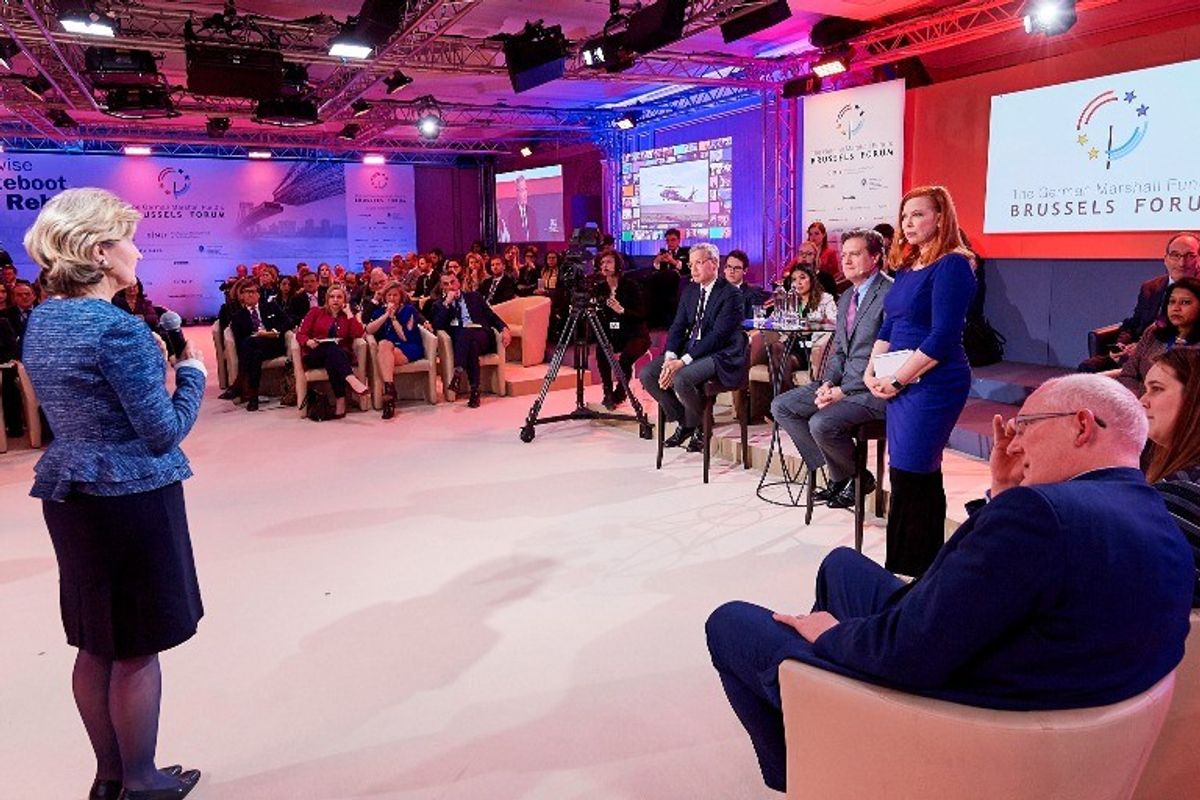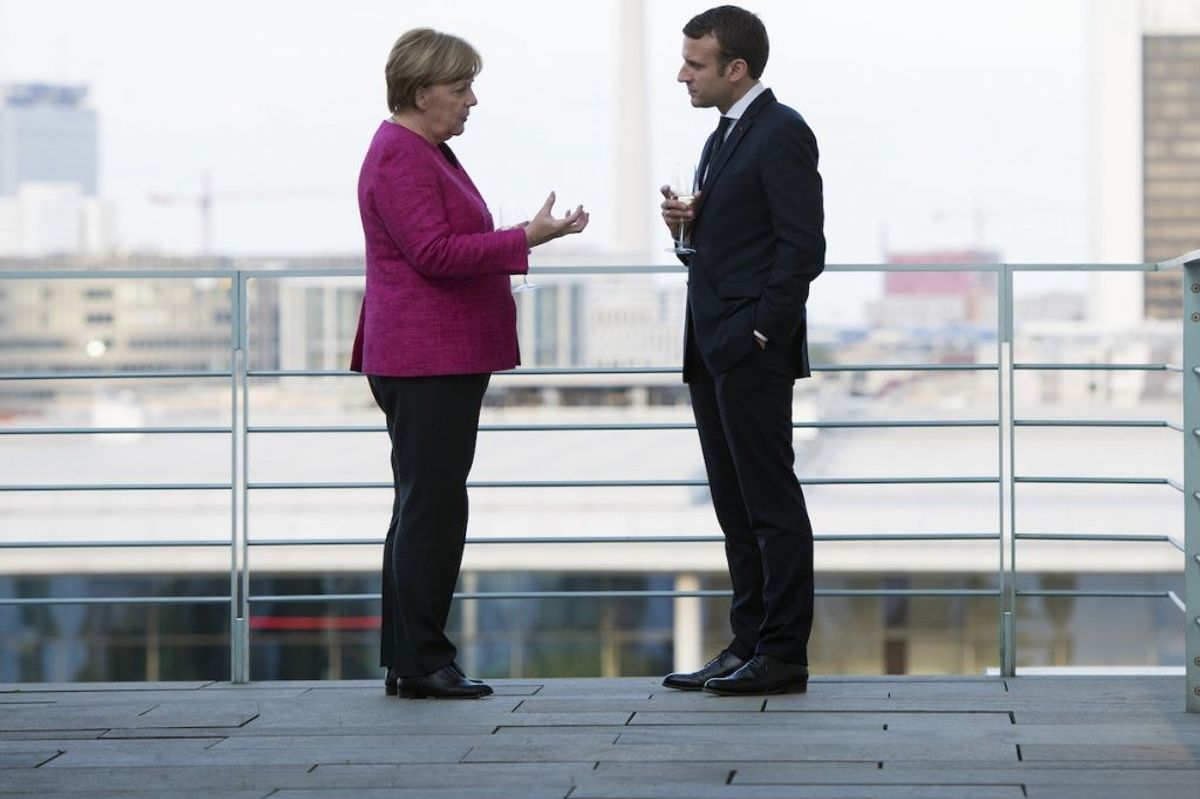President Barack Obama on Friday intervened in the debate over whether the United Kingdom should leave the European Union, as he strongly advocated for the country to remain since the UK “is at its best when it’s leading a strong Europe.”
Obama, who came out forcefully for the UK to vote to stay in the EU in both a Daily Telegraph editorial and a press conference with British Prime Minister David Cameron, called the outcome of the June 23 referendum a “matter of deep interest to the United States.”
He also delivered a warning that if the UK does vote to leave, it will not be a top priority for the US in terms of negotiating a trade agreement.
“I think it’s fair to say maybe some point down the line but it’s not going to happen any time soon because our focus is on negotiating with the EU,” he said during a joint press conference with British Prime Minister David Cameron in London. “The UK is going to be at the back of the queue.”
In light of Obama’s remarks, The Cipher Brief turned to Dr. Tim Oliver, the Dahrendorf Fellow for Europe-North American Relations at the London School of Economics, to break down some of Brexit’s potential implications for national security and economic policy.
TCB: What is the significance of President Barack Obama intervening in the Brexit debate?
Tim Oliver: As so often with a U.S. President when faced with an issue that has major international implications, he would have been damned if he hadn’t said something, damned if he did. Obama has said this before and so was expected to say something again, because he has made a clear judgment that this is an issue of such significance to the U.S., UK, EU, U.S.-EU and U.S.-UK relations that he must make his position clear.
This time he has done so much more direct, and it will register with a large number of people. His statements aid the Remain campaign’s aim to build a large number of experts, allies, and others who back their case. The case he made was in his usual eloquent way—one that comes across as carefully considered. He did not do this as a favor to David Cameron, with whom he’s not appeared to have the closest of relations. He did so because he thinks this is not in the collective interests of the U.S.-European relationship.
It’s also important to note therefore that he wasn’t just making clear his position to the UK, he was also speaking to the rest of the EU. From a U.S. perspective, this is not about U.S.-UK relations as much as it is also about U.S.-European relations.
TCB: What would a vote to leave the European Union mean for national security, both from a British and American perspective?
TO: A British exit from the EU presents an unwanted headache for the U.S. and transatlantic relations. It adds to the pressures facing the EU, pressures it does not need and which the U.S. does not want to see added to it. It complicates NATO-EU relations. Some supporters of leaving the EU think that in the event of difficulties in UK-EU relations after any Brexit, the UK could apply leverage to the EU through threatening to disrupt NATO. There is a comparison here with Greece and Turkey. The U.S. could then be dragged in as an arbiter, something it would deeply resent. A Brexit also threatens TTIP [Transatlantic Trade and Investment Partnership] and the geostrategic tool it is intended to be for the U.S. and EU, one that is intended to help them manage the rise of emerging powers.
The core of the UK-U.S. ‘special relationship’—nuclear weapons, intelligence, and special forces – would not be hit by a Brexit but the wider relationship would take some extra strain. The UK, one of the USA’s leading allies, risks becoming something of an awkward inbetweener in a transatlantic relationship that has been in the past, and will be more so if Britain votes to leave, shaped by the U.S. and other European powers.
TCB: Let’s turn to the business community and Brexit. What are some key issues American businesses need to consider regarding the Brexit vote? Will the UK be a less attractive opportunity for investments if the UK does vote to leave? And for British firms, how could it potentially impact trade with the U.S.?
TO: A lot hangs on two factors. First, how the rest of the EU reacts to a British exit and what withdrawal and post-withdrawal deals it offers the UK. The British debate is often oblivious to how any post-withdrawal deal with the EU will depend on the agreement of the remaining 27 EU member states and the European Parliament (who will also have to agree to this). Britain’s referendum debate is filled with ideas about Norway, FTAs etc. and oblivious to how it is not just for the UK to decide what it wants. Reaching agreement with the rest of the EU is not guaranteed to be easy.
Yes, economic factors will be important to the rest of the EU, especially given the EU runs a trade deficit with the UK. But given the differences in size of the two partners—UK vs. the rest of the EU – there is little sense elsewhere that the EU needs the UK more than the UK needs the EU. And the rest of the EU will also be alert to the potential damage a Brexit could do to the political idea of the EU, and that could take priority over the economics.
Second, how the UK itself reacts will be crucial. If the vote to leave is taken as a move to become more protectionist and close borders, then the UK could become a less hospitable place to do business in than it was in the past. Europe has often been used as an excuse for Britain’s problems. Those problems – low investment in infrastructure, low productivity, tensions between a global London and the rest of the UK—will not disappear if the UK votes to leave.
Regarding trade with the USA, a large part of this hangs, again, on what happens to the deal the UK negotiates on an exit. Could the UK form part of TTIP or will the UK have to seek its own deal? If it has to seek its own deal, then the UK has not negotiated a trade deal for 40 years —that has been the responsibility of the EU. The UK can regain those lost trade negotiating skills, but they will take time and thus add to the time it will take to negotiate any deals with the USA and others.
TCB: Would you say voting to leave or to remain is the smart vote for either the business community or for security interests?
TO: A vote to remain is more predictable than a vote to leave. There are still significant questions to be answered about the future of the EU the UK would remain a member of if it voted to remain, but these are outnumbered by the number of significant questions that would arise—in economics, politics, security – if the UK voted to leave, and these would be questions that would also apply to some extent to the EU. Given the economic and security challenges facing the EU and the transatlantic relationship, the last thing either needs is for the UK to vote to leave the EU.
Dr. Tim Oliver is the Dahrendorf Fellow for Europe-North American Relations at the London School of Economics’ IDEAS think tank and is a non resident fellow at Johns Hopkins University’s School of Advanced International Studies.












